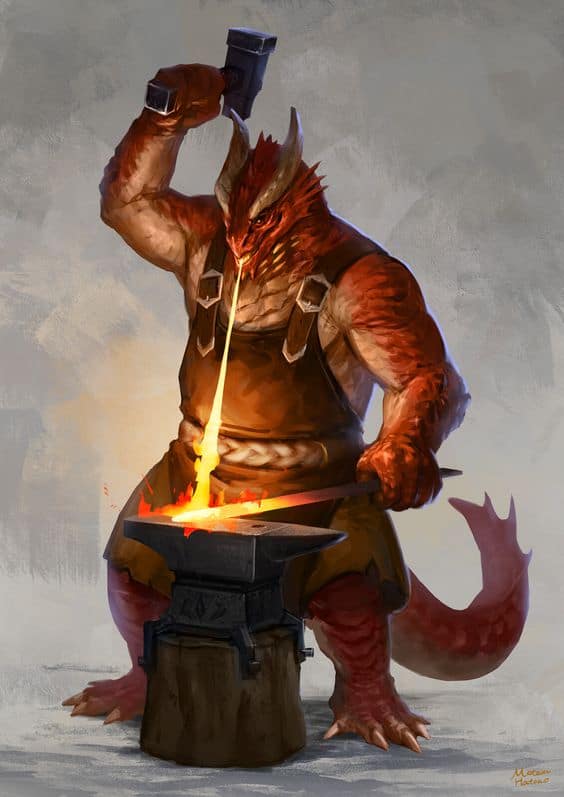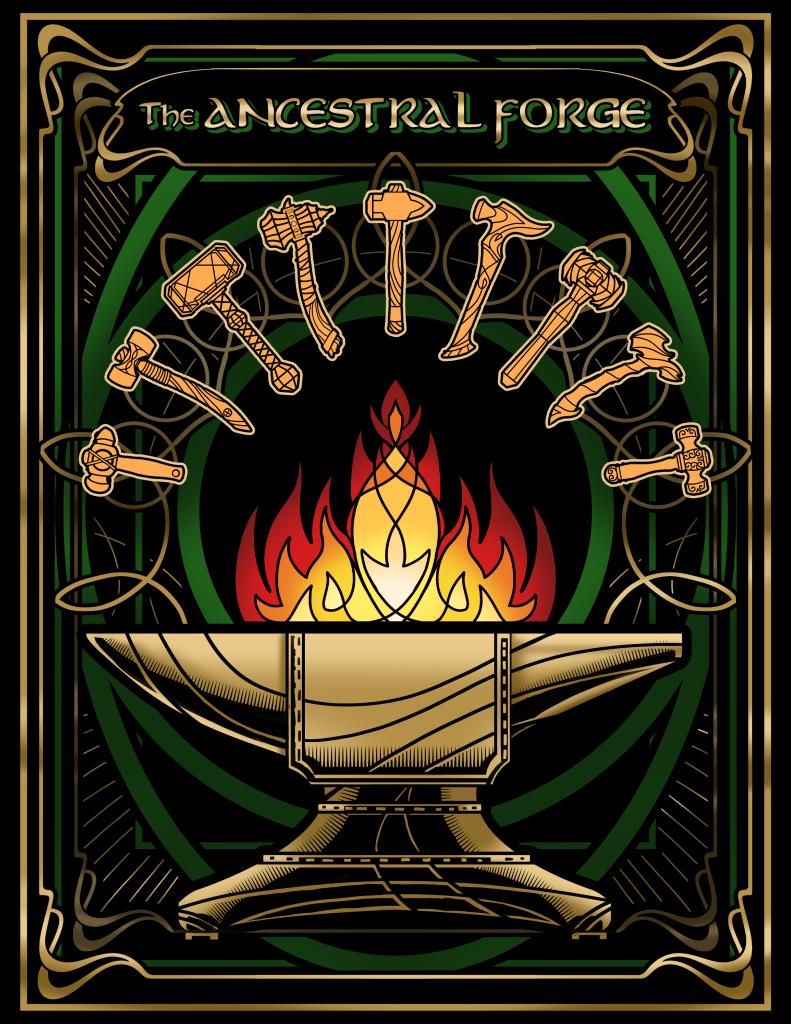D&D 5e: Transmutation Wizard Guide

D&D 5e: Transmutation Wizard Guide
Role in the Party
If wizards are the most studious class, then Transmutation Wizards might tend toward the class clown. And, like any good class clown, these wizards need to be creative. Transmutation magic allows its users to bend the material world, time, and even the laws of physics to their will. Those who are clever enough to master this school and can conceive productive ways to use its special features will inevitably be advantageous companions to any party.
The School of Transmutation Wizard subclass is found in the Player’s Handbook. Click here to pick up your own copy of the Player’s Handbook!
School of Transmutation Features
Transmutation Savant
This feature is standard for all wizard subclasses in the PHB, halving the amount of gold and time required to copy a particular school’s spell into a spellbook. However, it doesn’t benefit each subclass equally because each spell school has a different number of spells. Between 5e’s three main sourcebooks (PHB, XGtE, and TCoE), the School of Transmutation has 94 spells (second only to the School of Evocation with 101). That means Transmutation Wizards save more money and time when copying spells into their spellbook compared to, say, an Illusion Wizard whose school currently has 31 spells. For those who value frugality and efficiency, the School of Transmutation is one of your best options.
Minor Alchemy
At first glance, this feature sounds dope. Who wouldn’t want to mint their own fortune by carving wood coins and transforming them into silver? Unfortunately, there is a small but powerful caveat written into this feature: “…you can temporarily alter the physical properties of one nonmagical object…” After an hour passes, there’s a good chance your wizard might get run out of town for going on that shopping spree with counterfeit silver. Even with this time limitation, Minor Alchemy could be exploited by creative players who know a thing or two about natural materials and have ten minutes to spare to complete the procedure. For everyone else, though, this feature might collect dust in the back of your arsenal.
Transmuter’s Stone
Arguably the best feature for this subclass, the Transmuter’s Stone offers excellent buffs like elemental damage resistances and movement increases that can be altered quickly and easily in the heat of battle. Plan to banish the BBEG while your companions battle its minions? Your Transmuter Stone can also give a proficiency bonus boost to your Constitution saving throws. Combine that with the War Caster feat, and your Transmutation Wizard will basically have yogic-like concentration abilities.
Shapechanger
This feature allows your Transmutation Wizard to use polymorph on yourself without expending a spell slot. The problem is, most wizards will likely have taken polymorph as a spell by 10th level, and the feature limits your transformations to beasts with a CR 1 rating or lower. So don’t expect your squishy spellcaster to become some almighty buff or melee damage dealer. The best use of this feature is likely for scouting purposes (in the unlikely case your party doesn’t already have a decent scout), and even then, the loss of mental stats further limits the beasts into which you’d want to transform.
Master Transmuter
This feature offers some solid abilities (and a super quirky one) with the downside that your Transmuter’s Stone is destroyed when you use it. The Panacea and Restore Life abilities could be clutch if your group is in a bad spot with no cleric to help heal or revive an ailing or dead party member. Restore Youth could add some fun to your game, as a prank perhaps, but it’s hard to determine a practical reason for using it. And Major Transformation is no longer burdened by the temporary status that made Minor Alchemy kinda suck, but it still takes 10 minutes (which isn’t helpful in combat) and the “equal or lesser value” limitation means you still can’t open that Great Transmutation Wizard Bank you’ve been dreaming about, you greedy bugger.
Strengths
The Transmutation Wizard subclass offers some solid benefits. The Transmuter’s Stone is an incredibly valuable item and will be useful in all kinds of combat situations. Additionally, creative players might enjoy the material modification opportunities afforded by the Minor Alchemy and Master Transmuter features. And all you copper-pinchers will undoubtedly appreciate the increased savings in time and coin that the Transmuter Savant feature offers. For the player who delights in finding imaginative uses for their class features, the Transmutation Wizard could offer you the magical playground you’re looking for.
Weaknesses
The major weakness of the Transmutation Wizard is that many of the features available to this subclass are not exactly unique to Transmutation Wizards. Depending on your party’s makeup, the abilities gained by taking this subclass (enhanced scouting, healing, raise dead, polymorph, elemental damage resistances, etc.) can be achieved either with spells or by other party members like rogues and clerics. If you’ve got a balanced party, you’re not the most creative player, or you’re relatively new to the game, this might not be the subclass for you.
Best Race Options
Variant Human
If your group is sticking to the PHB, Variant Humans rank as one of the best race options for Transmutation Wizards because of its customizability and the option to take a feat at first level. Check out the suggestions below if you need help choosing a skill or feat when taking the Variant Human option.
Fairy
If you’re allowed to pick from other sourcebooks, the recently released Monsters of the Multiverse offers a ton of playable races including fairies, which are an excellent choice for Transmutation Wizards. You’ll get up to three different ability score increases and, between 1st and 5th level, you also gain the druidcraft cantrip, faerie fire (a 1st level spell unavailable to wizards), and the 2nd level spell enlarge/reduce. Even better, at level one you’ll have wings that give you a flying speed of 30 feet! An incredibly powerful ability for a class that excels in ranged combat.
Choosing the Right Skills
Arcana – Any wizard worth their salt should know a thing or two about the arcane.
History – Depending on the campaign, history checks can result in lots of delicious lore dumps.
Investigation – If you plan to do some clue sleuthing or determine the location of a hidden item, your wizard’s intelligence can help acquire some sweet knowledge or treasure with this skill.
Fitting Feats
Lucky – Who doesn’t like getting lucky? This feat can help turn your frowns upside down when you force your DM to reroll successful saving throws they made against your spell attacks.
Resilient – If you want to dedicate your Transmuter Stone to other buffs, you could use this feat to boost your Constitution score by 1 and gain proficiency in Constitution saving throws.
Warcaster – Ideal for melee casters, this feat is still useful for wizards purely because of the perma-advantage on Constitution saving throws made to maintain concentration after taking damage.
Optimal Backgrounds
Sage – Feel free to call yourself the God of Lore. The Sage background gives you proficiency in Arcana and History, two languages, and the Researcher feature, which allows you to locate the source of information you’re seeking, on the off chance that you didn’t already nail the skill check.
Cloistered Scholar – Let’s face it: wizards are book nerds. This background (from SWAG) gives you similar skills and language choices as the Sage background, plus the Library Access feature, which basically means you’re the favorite patron of every librarian in the realm.
Multiclassing Options
Artificer/Armorer Artificer – One of the wizard’s greatest weaknesses is…well, they’re weak. Delicate little spellcasting flowers with a mere 1d6 hp die and zero armor proficiencies, wizards are often the first to wither into unconsciousness when targeted by an enemy. To beef up your Transmutation Wizard, you might consider taking a couple of levels as an Artificer. Taking just one level will give your wizard proficiencies in light armor, medium armor, and shields, as well as thieves’ and tinkers’ tools. And if you choose to take two additional levels to gain a subclass, you can become an Armorer Artificer and have the pick of the armory with an additional heavy armor proficiency.
Would I recommend playing a Transmutation Wizard?
For pranksters and creative or players who, in general, delight in imagining inventive ways to use their features, the Transmutation Wizard could be a subclass that offers a welcome challenge to your creativity and inspires your imagination. And if your party is lacking a touchstone class like a rogue or cleric, the Transmutation Wizard brings some abilities to the table that can substitute for their skills. For those players who want a reliable spellcasting class that doesn’t require them to think too hard about how to beneficially use their abilities, you might be better suited for a different school of magic.








